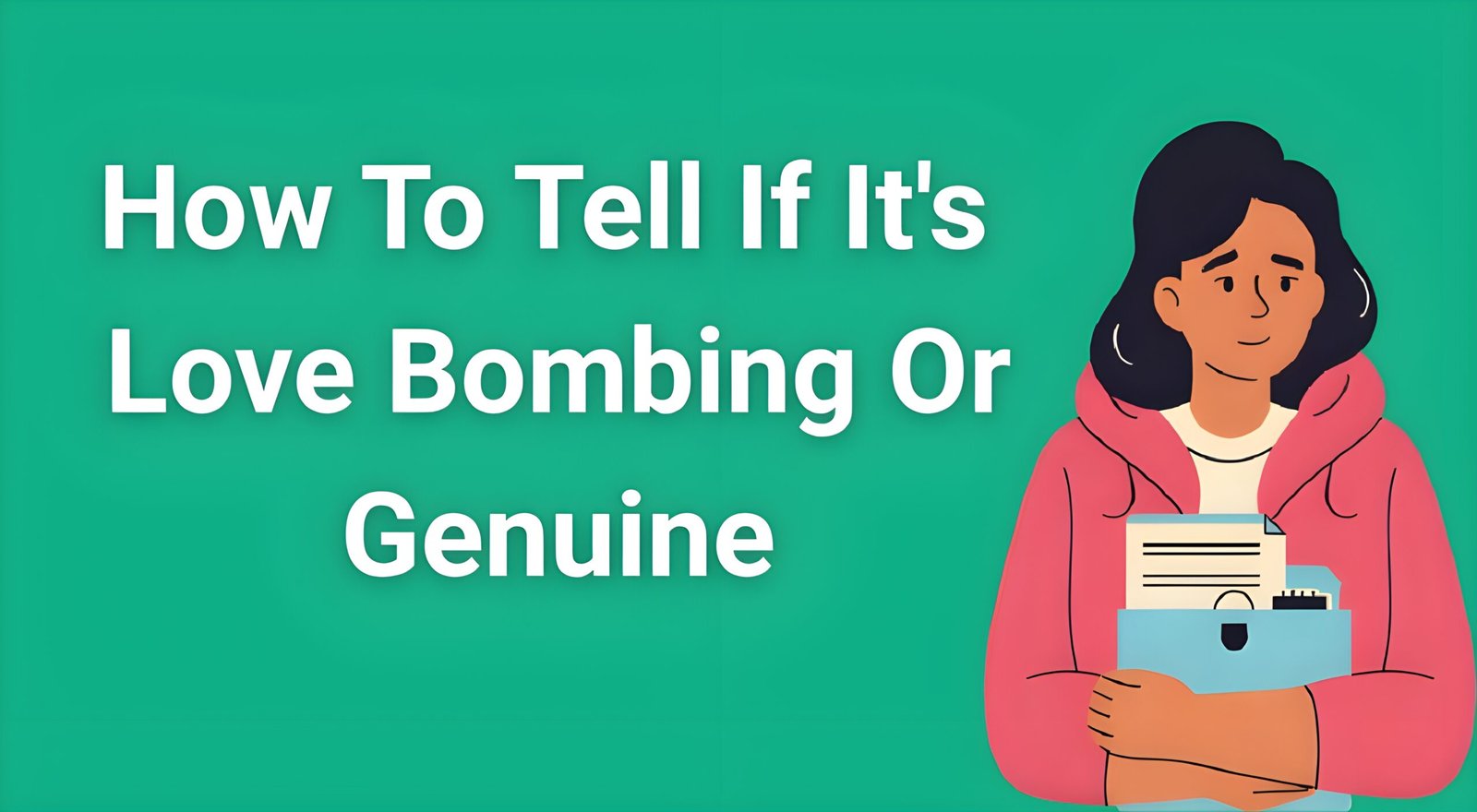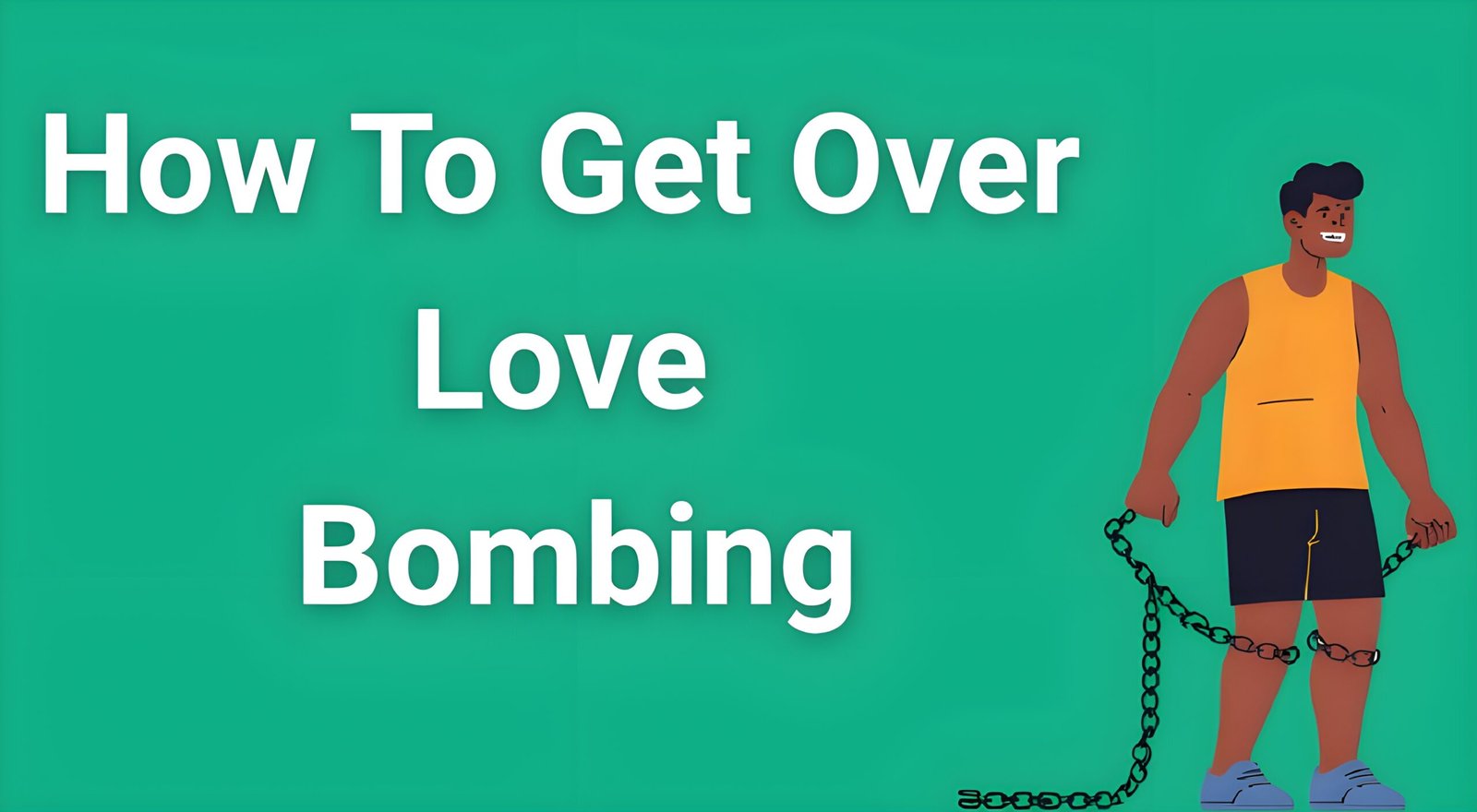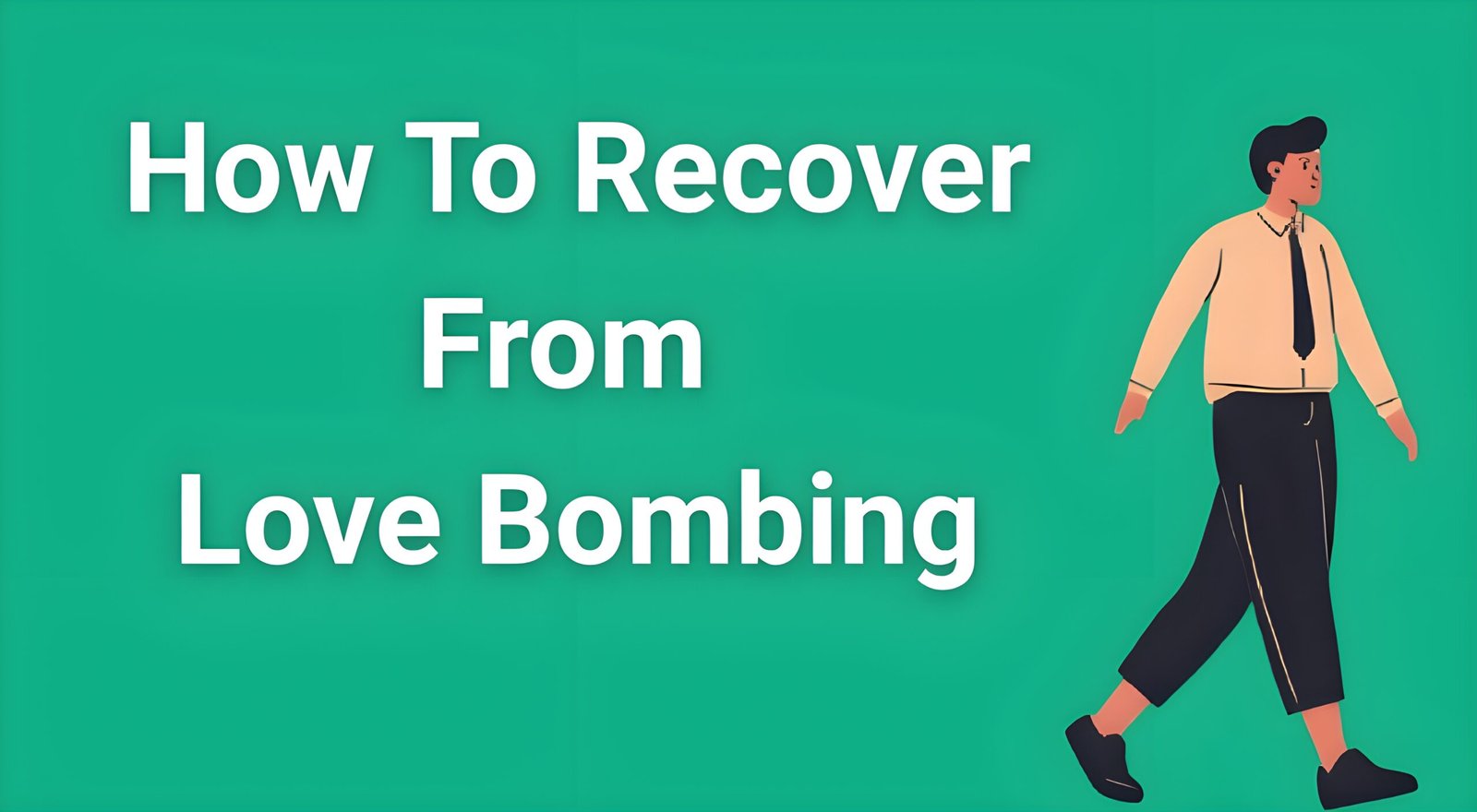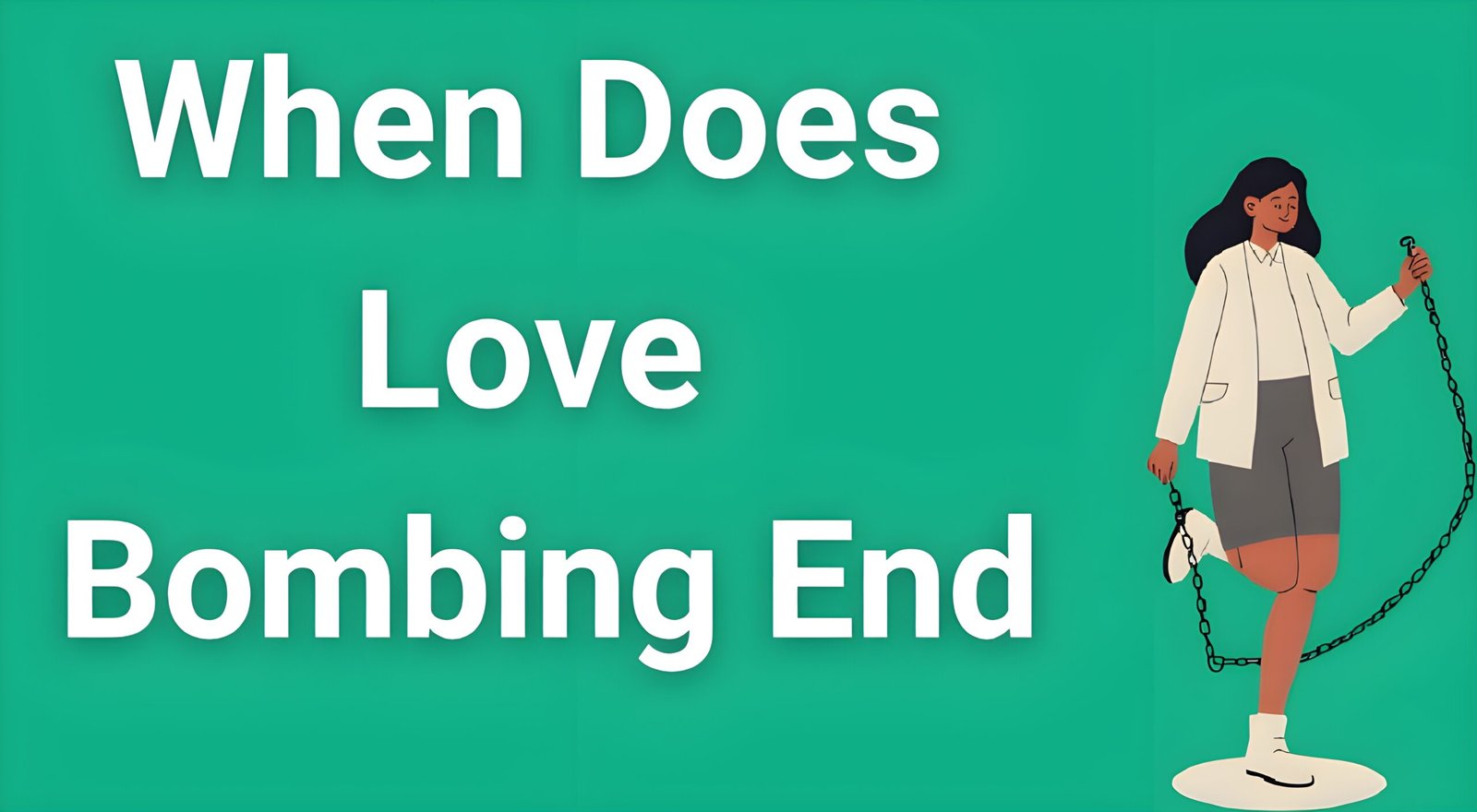When someone showers you with intense attention, expensive gifts, and constant declarations of love right from the start, it can feel like a fairytale romance. But how can you tell if this overwhelming affection is genuine love or something more sinister called love bombing? Understanding how to tell if it’s love bombing or genuine interest could be the difference between finding true love and falling into a manipulative trap.
- Understanding Love Bombing vs. Genuine Interest
- The 7 Clear Signs to Identify Love Bombing
- Red Flags That Distinguish Love Bombing From Healthy Romance
- Protecting Yourself: What to Do If You Recognize Love Bombing
- Breaking Free from Trauma Bonds
- Building Healthy Relationship Awareness
- Recovery and Moving Forward
- Conclusion
- Frequently Asked Questions
Love bombing is a psychological manipulation tactic where someone overwhelms you with excessive attention, affection, and grand gestures to gain control over you. Unlike genuine interest, which develops naturally over time, love bombing is calculated and designed to make you emotionally dependent. The challenge is that both can feel incredibly intoxicating in the beginning, making it crucial to know the warning signs.
If you’re questioning whether your partner’s behavior feels “too good to be true” or if friends have expressed concerns about how quickly your relationship is moving, you’re not alone. Many people struggle to distinguish between authentic romantic interest and manipulative love bombing tactics. This comprehensive guide will help you identify the key differences and protect yourself from emotional manipulation.
Understanding Love Bombing vs. Genuine Interest
Love bombing and genuine romantic interest can appear remarkably similar on the surface, but their underlying motivations are completely different. When someone has genuine interest in you, their actions stem from authentic feelings and a desire to build a meaningful connection. They want to get to know the real you, including your flaws and imperfections.
Love bombing, however, is a calculated strategy used by narcissists and emotionally abusive individuals to gain control. The intense attention and affection are not expressions of love but rather tools of manipulation designed to create emotional dependency. Understanding this fundamental difference is the first step in learning how to tell if it’s love bombing or genuine affection.
Genuine interest develops organically. There’s a natural progression of getting to know each other, building trust, and deepening emotional intimacy. The person respects your boundaries, gives you space when needed, and supports your independence. They’re interested in your thoughts, opinions, and life experiences because they genuinely want to understand who you are as a person.
In contrast, love bombing feels overwhelming and artificial. The person seems to know exactly what to say and do to sweep you off your feet, but their actions often feel scripted or too perfect. They may mirror your interests and values so perfectly that it seems like you’ve found your “soulmate” within days of meeting – a major red flag that distinguishes love bombing from genuine connection.
The 7 Clear Signs to Identify Love Bombing
1. Excessive Intensity Too Soon
One of the most telling signs when learning how to tell if it’s love bombing or genuine interest is the intensity level compared to how long you’ve known each other. Love bombers come on extremely strong from the very beginning, declaring deep feelings and making grand gestures before they’ve had time to actually know you.
They might tell you they love you within the first few dates, call you their “soulmate,” or talk about marriage and your future together before you’ve even established a real relationship foundation. This intensity feels artificial because genuine love takes time to develop. Real feelings grow gradually as you learn about each other’s personalities, values, and life experiences.
Genuine interest, while it can certainly be exciting and passionate, maintains a sense of proportion. Someone who’s genuinely interested will express their attraction and enthusiasm while still maintaining some healthy boundaries and allowing the relationship to develop naturally. They understand that real intimacy is built over time through shared experiences and mutual vulnerability.
2. Boundary Violations and Disregard for Your Comfort
A crucial difference between love bombing and genuine interest lies in how they handle your boundaries. Love bombers consistently push past your comfort zone and dismiss your requests for space or time. They might show up at your workplace unannounced, send dozens of texts when you don’t respond immediately, or pressure you to spend every free moment together.
When you try to set boundaries or ask them to slow down, love bombers often respond with guilt trips, emotional manipulation, or outright dismissal of your concerns. They might say things like “I thought you cared about me” or “If you really loved me, you’d want to spend time together.” This behavior reveals their true motive: control rather than genuine care for your wellbeing.
Someone with genuine interest will respect your boundaries and actually appreciate that you’re being honest about your needs. They understand that healthy relationships require balance and that you both need time for other aspects of your lives. When you ask for space or time to process, they don’t take it as a personal rejection but rather as a sign of your self-awareness and emotional maturity.
3. Isolation Tactics and Jealousy Patterns
Love bombers often display intense jealousy and attempt to isolate you from friends, family, and other support systems. They might express concerns about your friends “not understanding” your relationship or suggest that your family doesn’t have your best interests at heart. This isolation serves their goal of making you emotionally dependent on them alone.
They may become visibly upset or angry when you spend time with others, even close family members or long-time friends. Love bombers want to monopolize your time and attention, creating a situation where they become your primary source of validation and social connection. This makes it much harder for you to get outside perspective on the relationship.
Genuine interest includes respect for your existing relationships and support for your social connections. Someone who truly cares about you wants you to maintain healthy relationships with friends and family because they understand these connections contribute to your happiness and wellbeing. They might feel some natural jealousy occasionally, but they don’t try to control or limit your other relationships.
4. Emotional Manipulation and Guilt Tactics
When learning how to tell if it’s love bombing or genuine behavior, pay close attention to how the person responds to any resistance or questioning from you. Love bombers are masters of emotional manipulation, using guilt, shame, and emotional blackmail to maintain control when their initial tactics start to lose effectiveness.
They might threaten self-harm if you try to end the relationship, claim that you’re “breaking their heart” when you need space, or accuse you of being ungrateful for all their gestures and gifts. This manipulation is designed to make you feel responsible for their emotional state and guilty for having your own needs and boundaries.
In contrast, someone with genuine feelings will handle relationship challenges with maturity and respect. They might feel hurt or disappointed by certain situations, but they won’t try to manipulate you through guilt or emotional blackmail. They understand that healthy relationships involve working through difficulties together, not using emotions as weapons.
5. Future-Faking and Unrealistic Promises
Love bombers are notorious for “future-faking” – making elaborate promises about your future together that they have no intention of keeping. They might talk about the expensive vacations you’ll take, the house you’ll buy together, or the wedding you’ll have, all while you’re still in the early stages of dating.
These promises serve multiple purposes: they create excitement and hope, they make you feel special and chosen, and they keep you invested in the relationship even when red flags start appearing. The future they paint is often unrealistically perfect, designed to be exactly what you’ve always dreamed of rather than a realistic vision based on getting to know each other.
Genuine interest involves making realistic plans and promises that align with the current stage of your relationship. Someone who truly cares about you will express hope for the future while being honest about the need to take things one step at a time and see how the relationship develops naturally.
6. Inconsistent Behavior and Hot-Cold Patterns
A telltale sign that helps you understand how to tell if it’s love bombing or genuine affection is the consistency of their behavior over time. Love bombing typically follows a predictable pattern: intense pursuit and overwhelming attention in the beginning, followed by periods of withdrawal, coldness, or even cruelty once they feel they have you “hooked.”
This hot-and-cold pattern is designed to create emotional dependence through intermittent reinforcement – the most addictive form of psychological conditioning. The periods of withdrawal make you crave their attention even more, while the returns to loving behavior provide relief and renewed hope that things will go back to how they were in the beginning.
Genuine interest is characterized by consistency. While everyone has good days and bad days, someone who truly cares about you will treat you with respect and kindness consistently. Their feelings don’t drastically fluctuate based on whether they feel they “have” you or not, and they don’t use emotional withdrawal as a punishment or control tactic.
7. Lack of Interest in Your Authentic Self
Perhaps the most important factor in determining how to tell if it’s love bombing or genuine interest is whether the person seems interested in who you really are as a person. Love bombers are often more in love with the idea of conquering you than with your actual personality, thoughts, and experiences.
They may seem to share all your interests and agree with all your opinions, but this mirroring is often superficial and designed to make you feel you’ve found your “perfect match.” They don’t encourage you to share your vulnerabilities, fears, or imperfections because they’re not interested in the complete, complex person you are.
Someone with genuine interest wants to know the real you – your quirks, your past experiences, your dreams and fears, and yes, even your flaws. They ask meaningful questions about your life and remember your answers. They’re attracted to your authentic personality rather than trying to mold you into their ideal partner.
Red Flags That Distinguish Love Bombing From Healthy Romance
Learning how to tell if it’s love bombing or genuine romantic interest requires understanding specific red flags that indicate manipulation rather than authentic affection. These warning signs often appear early in the relationship, but they can be easy to miss when you’re caught up in the excitement of new romance.
Love bombers often have a history of intense, short-lived relationships. If someone tells you that all their ex-partners were “crazy,” “ungrateful,” or “didn’t appreciate them,” this could indicate a pattern of love bombing followed by discard when the person didn’t respond as desired. Healthy individuals take responsibility for their role in past relationship failures.
Another significant red flag is the speed at which they want to escalate the relationship. This goes beyond simple enthusiasm – love bombers push for commitment, exclusivity, or major relationship milestones (moving in together, meeting family, etc.) unreasonably quickly. They may frame this urgency as romantic, but it’s actually about gaining control before you have time to think clearly.
Pay attention to how they handle your successes and good news. Love bombers often have difficulty celebrating your achievements because they need to be the center of attention. They might overshadow your accomplishments with their own stories, minimize your successes, or even create drama to redirect focus back to themselves.
Protecting Yourself: What to Do If You Recognize Love Bombing
If you’ve identified that you’re experiencing love bombing rather than genuine interest, it’s important to prioritize your safety and emotional wellbeing. The first step is trusting your instincts – if something feels too intense, too perfect, or too good to be true, it probably is.
Document the behavior patterns you’re observing. Keep a journal of incidents, conversations, and your emotional responses. This can help you maintain clarity when the love bomber tries to gaslight you or make you question your perceptions. Having a written record also provides validation when you start to doubt yourself.
Reach out to trusted friends, family members, or a professional counselor. Love bombers often succeed by isolating their targets, so maintaining connections with your support system is crucial. These outside perspectives can help you see the situation more clearly and provide emotional support as you navigate the situation.
If you’re in immediate danger or fear for your safety, don’t hesitate to contact local authorities or a domestic violence hotline. Love bombing often escalates to more severe forms of abuse, and your safety is the top priority.
For those seeking deeper understanding of their situation, professional analysis can provide crucial clarity. Many people find that getting an expert assessment of their relationship dynamics helps them understand exactly what they’re dealing with and provides a clear path forward.
Breaking Free from Trauma Bonds
One of the most challenging aspects of love bombing is that it often creates trauma bonds – powerful psychological attachments that make it difficult to leave even when you recognize the manipulation. Understanding how to tell if it’s love bombing or genuine connection includes recognizing when these bonds have formed.
Trauma bonds develop through the cycle of intense affection followed by withdrawal or mistreatment. Your brain becomes addicted to the chemical rush of receiving attention after periods of deprivation, creating a neurological dependence that feels like love but is actually a stress response.
Breaking these bonds requires understanding that what you’re experiencing isn’t weakness or true love – it’s a normal psychological response to manipulation. The feelings are real, but they’re not based on genuine love or compatibility. They’re the result of calculated emotional manipulation designed to create dependence.
Recovery involves retraining your brain to recognize healthy relationship patterns and developing new neural pathways that don’t depend on the intense highs and lows of trauma bonding. This process takes time, patience, and often professional support, but it’s entirely possible to break free and develop healthier relationship patterns.
Many survivors find that structured recovery programs specifically designed for trauma bond healing provide the most effective path to freedom. These programs address the neurological aspects of the addiction-like attachment while providing practical strategies for maintaining no-contact and rebuilding your sense of self.
Building Healthy Relationship Awareness
Understanding how to tell if it’s love bombing or genuine interest is just the first step in developing healthy relationship skills. Once you can identify manipulative tactics, you also need to recognize what genuine, healthy romantic interest looks like in practice.
Healthy romantic interest is patient. The person takes time to get to know you without rushing physical or emotional intimacy. They’re comfortable with uncertainty and don’t need immediate commitment or declaration of exclusive feelings. They understand that real love develops over time through shared experiences and growing trust.
Genuine interest includes respect for your autonomy. A healthy partner encourages your independence, supports your goals and friendships, and doesn’t try to become your entire world. They want to add to your life, not replace it or control it.
Communication in healthy relationships is honest and direct. The person doesn’t use manipulation tactics, guilt trips, or emotional blackmail to get what they want. They express their needs clearly and listen to yours with respect, even when those needs might be different from their preferences.
Conflict resolution is mature and productive. Healthy partners don’t punish you with silent treatment, threats, or emotional withdrawal when disagreements arise. They work through problems together with the goal of understanding each other better and strengthening the relationship.
Recovery and Moving Forward
If you’ve experienced love bombing, recovery involves more than just ending the relationship. The experience can leave lasting effects on your ability to trust yourself and others, making it important to address the psychological impact before entering new relationships.
Many people who’ve been love bombed struggle with self-doubt and confusion about their own perceptions. The gaslighting and manipulation tactics used during love bombing can make you question your instincts and judgment. Rebuilding confidence in your ability to assess situations and people accurately is a crucial part of recovery.
Working with a trauma-informed therapist or counselor can provide valuable support during this process. They can help you understand the psychological mechanisms behind love bombing, validate your experiences, and develop strategies for identifying healthy relationships in the future.
Support groups, either in-person or online, can connect you with others who’ve had similar experiences. Sharing your story and hearing from other survivors can reduce feelings of isolation and provide practical insights about recovery and moving forward.
Self-care becomes particularly important during recovery. This includes not just physical care but also emotional and mental wellbeing. Practices like mindfulness, journaling, and setting boundaries help rebuild your sense of self and personal agency.
Conclusion
Learning how to tell if it’s love bombing or genuine interest is an essential skill for protecting yourself from emotional manipulation and finding authentic, healthy love. The key differences lie in the motivation behind the behavior, the respect for your boundaries and autonomy, and the sustainability of the connection over time.
Remember that genuine love is patient, consistent, and respectful. It doesn’t require you to sacrifice your independence, abandon your support system, or ignore your instincts. Healthy relationships enhance your life rather than consuming it, and they’re built on mutual respect and authentic connection rather than control and manipulation.
If you recognize signs of love bombing in your current relationship, trust your instincts and seek support. You deserve a relationship based on genuine care and respect, not manipulation and control. Understanding these differences empowers you to make informed decisions about your relationships and builds the foundation for healthier connections in the future.
Taking the time to understand these patterns, whether through self-reflection, professional guidance, or structured recovery programs, is an investment in your emotional wellbeing and future happiness. Your ability to identify and avoid manipulative relationships while cultivating genuine connections will serve you throughout your life.
Frequently Asked Questions
Q: How quickly can I tell if someone is love bombing me?
A: Love bombing signs often appear within the first few weeks of meeting someone. Key early indicators include excessive intensity, boundary violations, and declarations of deep feelings before they’ve had time to know you.
Q: Can love bombers change their behavior?
A: While people can change with genuine effort and professional help, love bombing is typically part of a deeper pattern of manipulative behavior. It’s important to prioritize your safety rather than hoping someone will change.
Q: Is it possible to mistake genuine enthusiasm for love bombing?
A: Yes, which is why it’s important to look at the overall pattern rather than individual behaviors. Genuine enthusiasm includes respect for boundaries and develops naturally over time.
Q: What should I do if I’m not sure whether it’s love bombing or genuine interest?
A: Trust your instincts if something feels overwhelming or too intense. Take time away from the person to gain perspective, and consider talking to trusted friends or a counselor about your concerns.
Q: How long does it take to recover from a love bombing relationship?
A: Recovery time varies depending on the length and intensity of the relationship, but most people begin feeling significantly better within 3-6 months with proper support and self-care practices.






